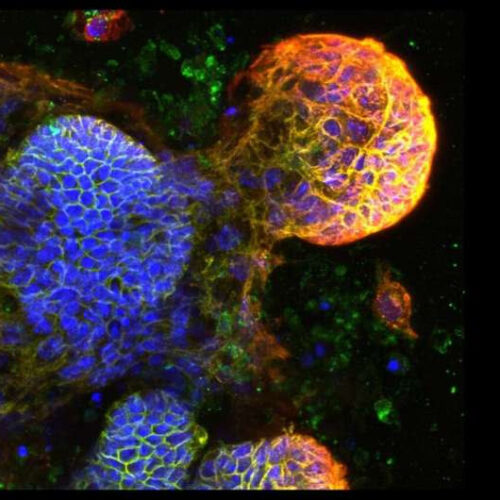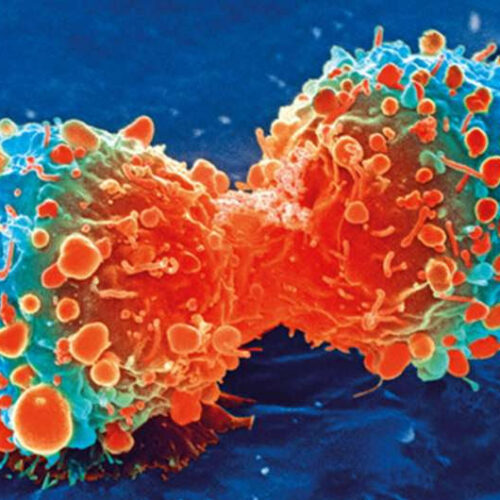by Walter and Eliza Hall Institute Crypts and buds in the small intestine and colon. Credit: Dr. Maree Faux, WEHI. A biomarker in the blood of patients with bowel cancer may provide valuable insight into the risk of cancer relapse after surgery and the effectiveness of chemotherapy. Research published in PLOS Medicine found circulating tumor DNA...
Tag: <span>Bowel cancer</span>
Insight into early stages of bowel cancer could provide new treatments
by University of Glasgow Cancer cell during cell division. Credit: National Institutes of Health An international team of scientists have identified key factors underpinning the development of bowel or colorectal cancer in patients with a genetic predisposition to the disease. The study—led by researchers at the Cancer Research UK Beatson Institute at the University of Glasgow and the University of...
Clinical trial launched following discovery that psychiatric drug may prevent bowel cancer
WORLDWIDE CANCER RESEARCH The study, published in the journal Nature, shows how a drug available on the NHS can boost the fitness of healthy stem cells in the gut, making them more resistant to sabotage from mutant stem cells that cause cancer. Researchers in the Netherlands, funded by the UK charity Worldwide Cancer Research, have discovered...
Testing people with bowel cancer for genetic syndrome could save lives and money
by Medical Journal of Australia Lynch syndrome, a mutation of four genes involved in DNA repair, is associated with increased risk of developing a range of cancers, particularly colorectal cancer (CRC). In the most comprehensive analysis for Australia to date, published online by the Medical Journal of Australia today, an international team of researchers led...
Here’s what you can eat and avoid to reduce your risk of bowel cancer
by Suzanne Mahady, The Conversation Australia has one of the highest rates of bowel cancer in the world. In 2017, bowel cancer was the second most common cancer in Australia and rates are increasing in people under 50. Up to 35% of cancers worldwide might be caused by lifestyle factors such as diet and smoking. So how can we go about reducing our risk of bowel cancer? What to eat Based on current evidence, a high...
Combo of existing drugs fights bowel cancer and reduces side effects
The combination of a common cancer drug and another cancer medication is more effective than some standalone drugs in stopping the progression of colorectal cancer. It also reduces unpleasant side effects. Dr. Richard Goldberg, director of the West Virginia University Cancer Institute in Morgantown, wanted to look for new ways to slow the progression of colorectal...
Targeting one hormone may help treat bowel cancer
By Catharine Paddock PhD Fact checked by Jasmin Collier Scientists in Spain have discovered a mechanism that promotes inflammation-related bowel cancer and could offer new treatment targets. The finding concerns the activity of the signaling protein p38 in the myeloid cells of the immune system and that of IGF-1, which is a hormone triggered by p38. Researchers...
Scientists ‘completely CURE’ bowel cancer in mice using a form of pioneering immunotherapy and say it could kill ‘virtually ALL’ tumor types
Immunotherapy teaches the body to attack cancer cells and destroy tumors A US team developed a new type of radioimmunotherapy, which combines traditional radiation therapy and immunotherapy Until now, this has had limited success eradicating tumors, say the researchers The new treatment works because it delivers the correct amount of radiation However, a limitation of...
Bowel cancer medication could help combat early-onset Parkinson’s disease
People with certain forms of early-onset Parkinson’s disease could potentially benefit from taking a medication used to treat certain forms of cancer, according to new research by University of Leicester scientists and funded by the Medical Research Council. The study, which has been published in Science Matters, suggests that folinic acid, which is used in medications...
- 1
- 2


